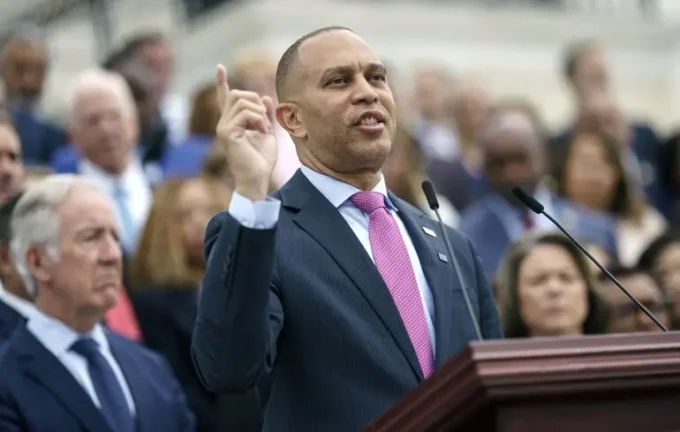Democratic Resistance in the House: Hours-long Battle to Preserve Social and Tax Guarantees Ahead of Trump’s Final Vote

In the U.S. Congress, a fierce political showdown is unfolding on the eve of a vote on one of the most contentious and debated bills in recent years. Democratic representatives in the House have deployed a symbolic act of opposition, attempting to slow down the approval process of a high-profile tax and budget legislation championed by Donald Trump as a cornerstone of his political legacy. Over more than eight hours, loudly and persistently, House Minority Leader Hakeem Jeffries took the floor to voice dissent and draw attention to critical issues facing citizens—ranging from healthcare and food assistance to education programs. His speech, which began early in the morning and lasted over eight hours, stood as a vivid display of democracy and active civic engagement. Meanwhile, Republicans, who hold a majority, asserted they possessed enough votes to pass the bill and insisted on deadlines, notably by July 4, which Trump considers a symbolic date. The legislation, dubbed by Trump as “one of the greatest deals in history,” proposes extending large-scale tax relief measures introduced during his first term, partly funded by significant cuts to programs like Medicaid and other social benefits. The bill also aims to dismantle green energy incentives introduced under President Biden and increase military and border security investments. Overnight, several conservative lawmakers voiced concerns about the bill’s content and its implications, while intense voting debates culminated in a narrow victory—219 in favor, 213 against. This paves the way for the bill’s final approval in the House and subsequent signing by the President. Trump publicly criticized internal opposition within his party, condemning what he called the “largest tax cuts in history” versus “the greatest tax hikes and economic failure.” Legislators favoring fiscal conservatism argue that the bill falls short of adequately addressing national debt and reducing green subsidies. Many warn that cuts to Medicaid could deprive over 12 million Americans of healthcare, prompting criticism from the White House, which claims the legislation will foster long-term economic growth and budget stability.

